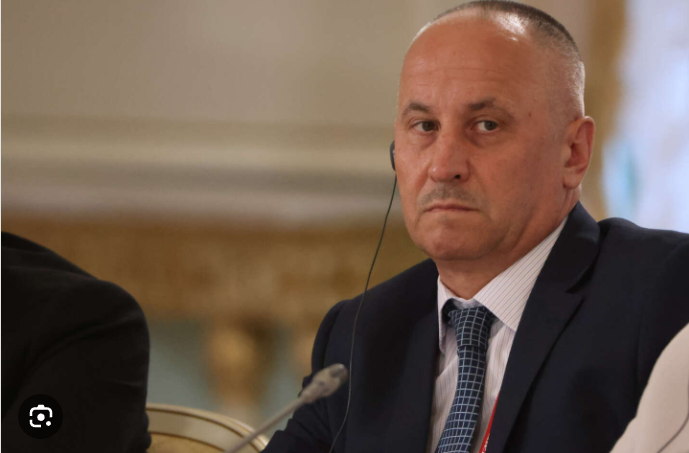(Al Jazeera Media Network) With the gaze of much of the world fixed on the carnage unfolding in Gaza, Russia’s President Vladimir Putin continues to expand his country’s reach in Africa.
Russia, in the form of the private military contractor (PMC) Wagner, has been a growing presence in Libya since at least 2018, when the group was first reported to be training troops under renegade military commander Khalifa Haftar, leader of the Libyan National Army, forces belonging to the eastern of the country’s two parliaments.
But, following the death of Wagner’s founder and former Putin ally Yevgeny Prigozhin, after his failed coup in Russia last year, the fate of the paramilitary force in Libya and Africa seemed uncertain.
Russia operates several PMCs. However, none is said to be as close to the Kremlin or to have been deployed as extensively as that founded by Prigozhin. At little cost to the Kremlin, Wagner has gained Russia financial, military, and political influence across swaths of Libya and Africa.
Given the stakes, the Kremlin was never likely to disband Wagner, despite its active rebellion last year. Instead, following Prigozhin’s much-predicted demise, his commercial and military interests were divided between Russia’s various intelligence services, a report by the Royal United Services Institute (RUSI) released this week claims.
Like other PMCs, like the United States’ Constellis (formerly Blackwater), Wagner allowed its government to operate in overseas conflicts at arm’s length: projecting power while maintaining a degree of deniability. That distance also allows PMCs to operate outside the typical bounds of state warfare, engaging in campaigns of terror and disinformation in a way that conventional forces cannot.
Command of Wagner’s overseas presence has been assigned to Russia’s military intelligence (GRU), specifically General Andrei Averyanov. Through a series of intermediate PMCs such as Convoy, established in Russian-occupied Crimea in 2022, and Redut, active in Ukraine, but established in 2008 to protect Russian commercial interests, maintaining legal deniability, Wagner’s Ukrainian operation is being retitled the Volunteer Corps, with other operations becoming the Expeditionary Corps.
That its ambition remained undimmed was made clear by its initial instruction to build a fighting force across Africa of some 40,000 contractors – since reduced to 20,000 but far larger than its current footprint.
Some measure of General Averyanov’s intent can perhaps be gained from looking at past command of Unit 29155, the wing of Russian military intelligence reported to be responsible for overseeing foreign assassinations and destabilizing European countries.
Africa, one of the richest continents in terms of minerals and energy, is undergoing a “youth boom” that stands to change the demographics of the world.
Within Africa, Libya boasts the largest oil reserves and gold deposits estimated to rank among the world’s top 50. In addition, its geographic location, linking Niger, Chad, and Sudan to North Africa and Europe, makes it of vital strategic importance.
Already Averyanov has been busy, travelling to meet with Field Marshall Haftar in September of last year, followed by trips to Mali, Burkina Faso, the Central African Republic (CAR), and Niger.
In all cases, the offer was largely the same: resources for security.
Only in Libya did that rubric break. Russia’s lucrative oil extraction plants operate under the auspices of Libya’s other, internationally recognized government in Tripoli, meaning Haftar and his allies, claimed by the US Department of Defence to include the United Arab Emirates, would have to pay for the Expeditionary Corps’ deployment themselves.
“Haftar needs Wagner,” Tarek Megerisi, a senior fellow at the European Council on Foreign Relations said, using the better-known name for the group. “Furthermore, while he’s hosting them in Libya, [Wagner] can use its position to prop up operations in Syria, Sudan, and elsewhere.
“It’s a network,” he continued, citing reports. “It’s not just military support, either. They are using their position in eastern Libya to transport [illegal narcotic] Captagon from Syria, shift gold to evade sanctions, as well as help traffic migrants from southern Africa and as far away as Bangladesh.
“Libya is a hugely profitable area for Wagner,” he said.
By current estimates, the Expeditionary Corps is thought to have some 800 contractors deployed in Libya, with a further 4,600 dispersed across sub-Saharan Africa. In addition to its fighters, the Expeditionary Corps maintains three air bases – one in the oil basin of Sirte, one in al-Jufra in the interior, and one in Brak al-Shati – which analysts say allow both groups (Haftar’s Libyan National Army and the PMC) to move goods between allies in Sudan and other sub-Saharan locations.


